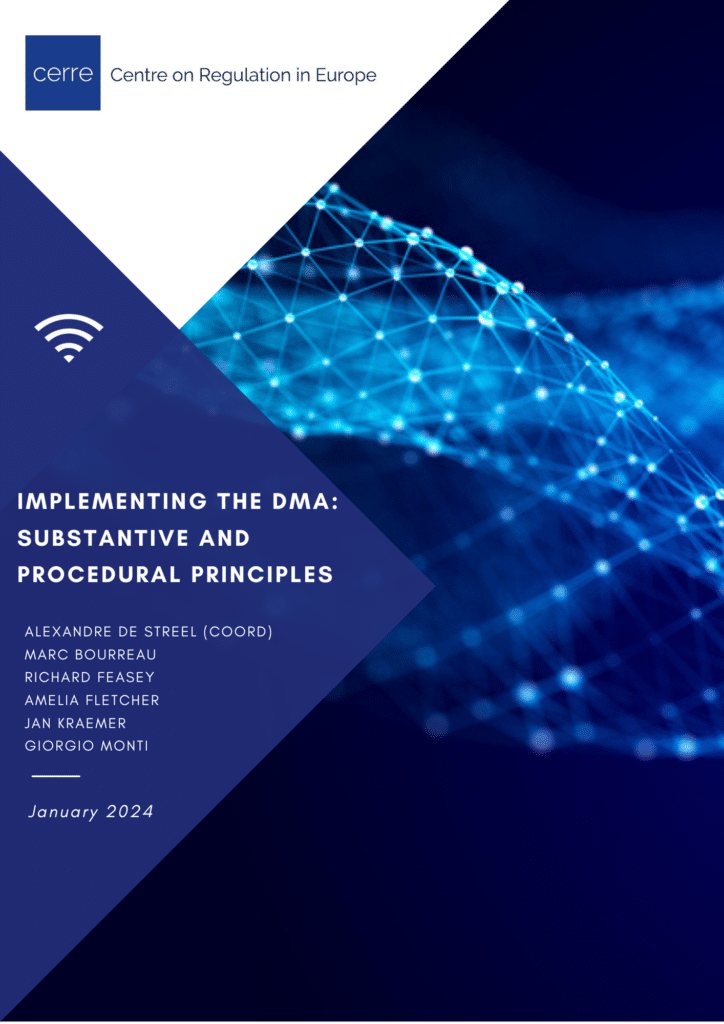and University of Namur
Alexandre de Streel is CERRE Academic Director, professor of European law at the University of Namur and visiting professor at the College of Europe (Bruges) and SciencesPo Paris. He sits on the scientific committees of the Knight-Georgetown Institute (US), the European University Institute-Centre for a Digital Society (Italy), and the Mannheim Centre for Competition and Innovation (Germany).
His main research areas are regulation and competition policy in the digital economy (telecommunications, platforms, and data) as well as the legal issues raised by the developments of artificial intelligence. He regularly advises the European Union and international organisations on digital regulation.
Previously, Alexandre held visiting positions at New York University Law School, the European University Institute in Florence, Panthéon-Assas (Singapore campus), Barcelona Graduate School of Economics, and the University of Louvain. He also worked for the Belgian Deputy Prime Minister, the Belgian Permanent Representation to the European Union, and the European Commission. He has also been the chair of the expert group on the online platform economy, advising the European Commission.
Alexandre de Streel is CERRE Academic Director, professor of European law at the University of Namur and visiting professor at the College of Europe (Bruges) and SciencesPo Paris. He sits on the scientific committees of the Knight-Georgetown Institute (US), the European University Institute-Centre for a Digital Society (Italy), and the Mannheim Centre for Competition and Innovation (Germany).
His main research areas are regulation and competition policy in the digital economy (telecommunications, platforms, and data) as well as the legal issues raised by the developments of artificial intelligence. He regularly advises the European Union and international organisations on digital regulation.
Previously, Alexandre held visiting positions at New York University Law School, the European University Institute in Florence, Panthéon-Assas (Singapore campus), Barcelona Graduate School of Economics, and the University of Louvain. He also worked for the Belgian Deputy Prime Minister, the Belgian Permanent Representation to the European Union, and the European Commission. He has also been the chair of the expert group on the online platform economy, advising the European Commission.








